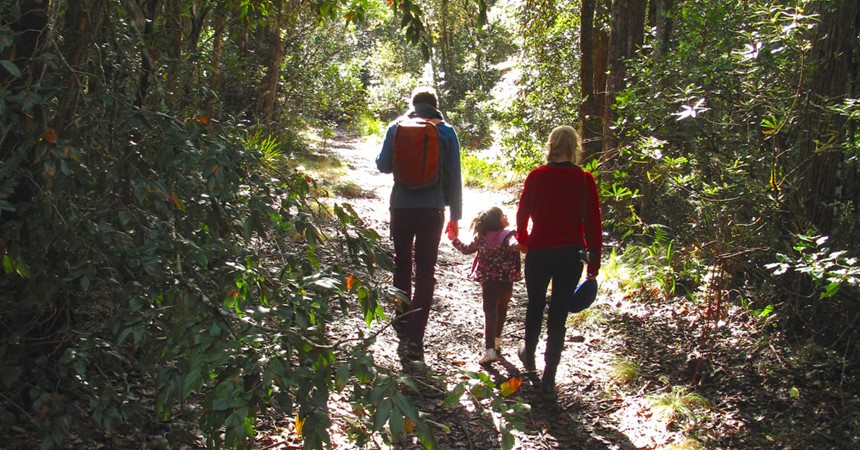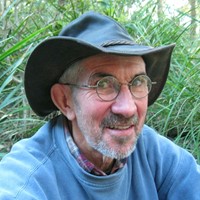On World Environment Day, 2013, Pope Francis had only been in office for a couple of months, but the mettle of the man was made clear when he asked:
“What does cultivating and preserving the earth mean? Are we truly cultivating and caring for creation? Or are we exploiting and neglecting it?”
That day passed and most of us continued caring for Planet Earth as little or as much as before. But now he’s produced Laudato Si' - On Care for Our Common Home. As an Encyclical Letter, it carries powerful authority within the Church, but his ambition is boundless: “I wish to address every person living on this planet.”
And addressed we are! The language is easy but with a scholarly foundation. The content and the passion of its presentation create a global landmark in social and environmental education.
This Encyclical Letter − arising from a collaboration of economists, climate scientists and Vatican officials − is intended to influence the United Nations climate talks in Paris. Pope Francis pulls no punches: “We lack leadership capable of striking out on new paths and meeting the needs of the present with concern for all and without prejudice toward coming generations.”
He has laid claim to that leadership.
“It is my hope that this Encyclical Letter, which is now added to the body of the Church's social teaching, can help us to acknowledge the appeal, immensity and urgency of the challenge we face.”
This year I was privileged to attend the Bread Loaf Conference – a gathering of environmental writers in Vermont, USA. I was there on the strength of an essay expressing my frustration that more than thirty years espousing principles and practices of respect for the natural world seemed to have fallen on deaf ears. Yes, there was cause for satisfaction along the way and areas of progress, but my small planet and its ever-growing weight of humanity seemed destined for disaster, and I could feel only failure.
At the conference were more than 70 writers from all over the USA, many with long and distinguished careers, and not one there spoke optimistically. None spoke proudly of the circumstance of his or her own country, Americans being among the highest per capita carbon polluters in the world. Nor could I speak proudly, Australians having the dubious honour of being even more polluting of the atmosphere per capita than Americans.
At that time, neither country seemed able to set a firm path for a sustainable future. And so we were left wondering what we might do better, and asking ourselves how we might find inspiration to maintain a voice for what could not speak for itself.
Now Pope Francis has presented that voice. In Laudato Si', he has eloquently expressed, from the perspective of the poorest people around the world, the need for us to find a path to share the resources of this Earth in a manner that will not jeopardise the lives of future generations. It is an encyclical of the most profound conviction.
Laudato Si' prompted reaction around the world, far beyond the Catholic community. Conservative candidates for the American Presidential election were quick to pour disdain on his right to pass judgement on matters of science and economics, particularly climate change. Republican presidential candidate Jeb Bush (a devout Catholic) responded,"I don’t get economic policy from my bishops or my cardinals or my Pope.” Bush said religion, “ought to be about making us better as people, less about things [that] end up getting into the political realm”.
America's Bloomberg Businessweek was receptive, however.
“The document offers a synthesis of secular research and religious principle. It affirms the basic scientific consensus that the Earth is warming and that human activity is largely to blame. And it asserts a moral responsibility to understand and respond to that dynamic.”
Bloomberg's pronouncements reach around a million subscribers in 150 countries. I would guess only a small proportion would be practising Catholics. Is it too much to suggest that in Pope Francis' Encyclical, diverse cultures all around the world can identify the moral guidance that is so difficult to find in times of uncertainty?
Did newspapers mention climate change 30 years ago? Were ordinary people conscious then that it simply was not possible for a finite planet to support indefinitely the mantra of growth and prosperity for all? But now, in rich countries and poor, parents look at their children and know in their hearts that their future depends on a quantum shift in our relationship with the natural world.
Pope Francis has presented in Laudato Si' a framework for that shift with both a spiritual and a practical foundation. It is radical because it dares to espouse that the future is in our hands: we cannot sit back and leave it to God. St Francis of Assisi in the 13th century talked of Brother Sun and Sister Moon. Pope John Paul II introduced the term 'ecological conversion'. And now we have Pope Francis who can present a case for profound change, through arguably the most powerful political treatise ever written.
For me, Laudato Si' is profoundly uplifting and affirming. From a point close to despair, I am now rejuvenated. What do the doubters say when a Pope backed by a Pontifical Academy of Sciences states:
“The pace of consumption, waste and environmental change has so stretched the planet's capacity that our contemporary lifestyle, unsustainable as it is, can only precipitate catastrophes.... The effects of the present imbalance can only be reduced by our decisive action, here and now. We need to reflect on our accountability before those who will have to endure the dire consequences.”
I sense we can all feel a shift: we cannot live without burning coal and oil and gas but we know and fear the consequences and are coming to an acceptance, even in the boardrooms, that a steady shift to alternatives is now unstoppable. It is a moral imperative. It has the leader of 1.2 billion Catholics behind it. It is a shift that now has the President of America and the President of China behind it. It has behind it every Australian household that has invested in photovoltaic panels on the roof or a solar hot water service. And we await the outcome of the United Nations Climate Conference in Paris, guided as it is by the Pope's emphatic leadership.
Thanks to Pope Francis, I now dare hold hope. Forgive me, a reticent atheist, but I would just love to hug this beautiful Argentinian priest who writes:
“In union with all creatures, we journey through this land seeking God....Let us sing as we go. May our struggles and our concern for this planet never take away the joy of our hope.”
Papa Francesco, I am singing with you!
Laudato Si’ can be read at http://w2.vatican.va.




























































































